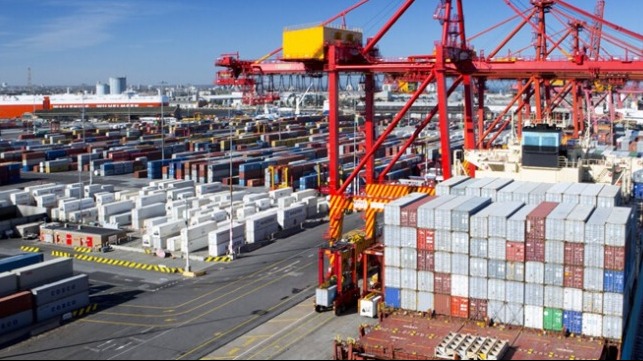MUA Suspends Strike Due to COVID-19 Cases in Melbourne

Just over a week after announcing that it would begin a rolling job action across Australia’s ports, the Maritime Union of Australia agreed to suspend the action at the Port of Melbourne. The decision to stop the strike came after as many as a third of the workers at one of the port’s terminals were forced into isolation due to two cases of COVID-19.
The Maritime Union of Australia had announced starting October first that it would be conducting three times a week work stoppages at Patrick’s Melbourne terminal as well as intermittent, rolling strikes at Patrick’s terminals in other major Australian ports, including Sydney, Brisbane, and Fremantle. The strike was in response to 19 months of failed labor negotiations over a contract for the dockworkers and a reported breakdown in the negotiations.
At the beginning of the week, Patrick CEO Michael Jovicic said that the company had asked the union to withdraw the strike in Melbourne, which was scheduled for every Monday, Wednesday, and Friday in October. The company cited mounting backlogs and that one of its workers had tested positive for the virus. After the test results came back, local health officials ordered 22 of Patrick’s employees who were said to be close contacts of the individual to go into a 14-day quarantine. An additional 31 casual contacts were also told to isolate until they could be tested.
The MUA initially rejected Patrick’s request saying they believed it was another bargaining tactic. A union official was quoted by the local media saying it was six percent of the workforce, not the 20 percent Patrick was claiming, that had been impacted.
Two other terminal operators in Australia, however, added that they were also dealing with COVID-19 cases meaning that they had no additional capacity to handle vessels that wanted to divert from Patrick’s Melbourne terminal. At the end of September, COVID-19 case numbers reached record levels in the city causing officials to impose tight restrictions on the region.
The situation grew more urgent after Patrick reported at mid-week that a second, unlinked case of COVID-19 had been discovered in Melbourne. More than 100 employees were ordered into a 14-day isolation after they were determined to have been close contacts to either of the two cases. Patrick said that a third of its workforce would be in quarantine and that delays at the port with had been running at around four days were likely to balloon to seven to 10 days by mid-month.
MUA officials said they were ending the job action in Melbourne as “an act of good faith,” due to the reduced number of people available during the quarantine. The union said it was suspended until further notice but said that actions at Brisbane, including two four-hour strikes, a 24-hour action, and a ban on overtime, as well as actions in Fremantle, would continue. They, however, said no further action was planned in Sydney after a weekend work stoppage at the beginning of the month.
“While the MUA recognizes the need to lift its action to maintain operation of the port because of the impact of COVID, the union has twice called on Patrick to come back to the bargaining table to discuss enterprise agreement issues which remain unresolved,” Jamie Newlyn, national assistant secretary of the MUA told Australia’s Financial Review.
Officials from Patrick said their offers remained open to the union and that they would resume talks only if the union suspended all its job actions nationally.
In addition to the delays in ports, Wallenius Wilhelmsen announced that it had stopped calls in Fremantle. The shipping line reported incurring significant costs diverting three vessels to other ports. Western Australia’s farmers complained harvesters and tractors that had been sent to Melbourne and Adelaide were urgently needed for their harvest and the delay would have a significant impact on the economy.
